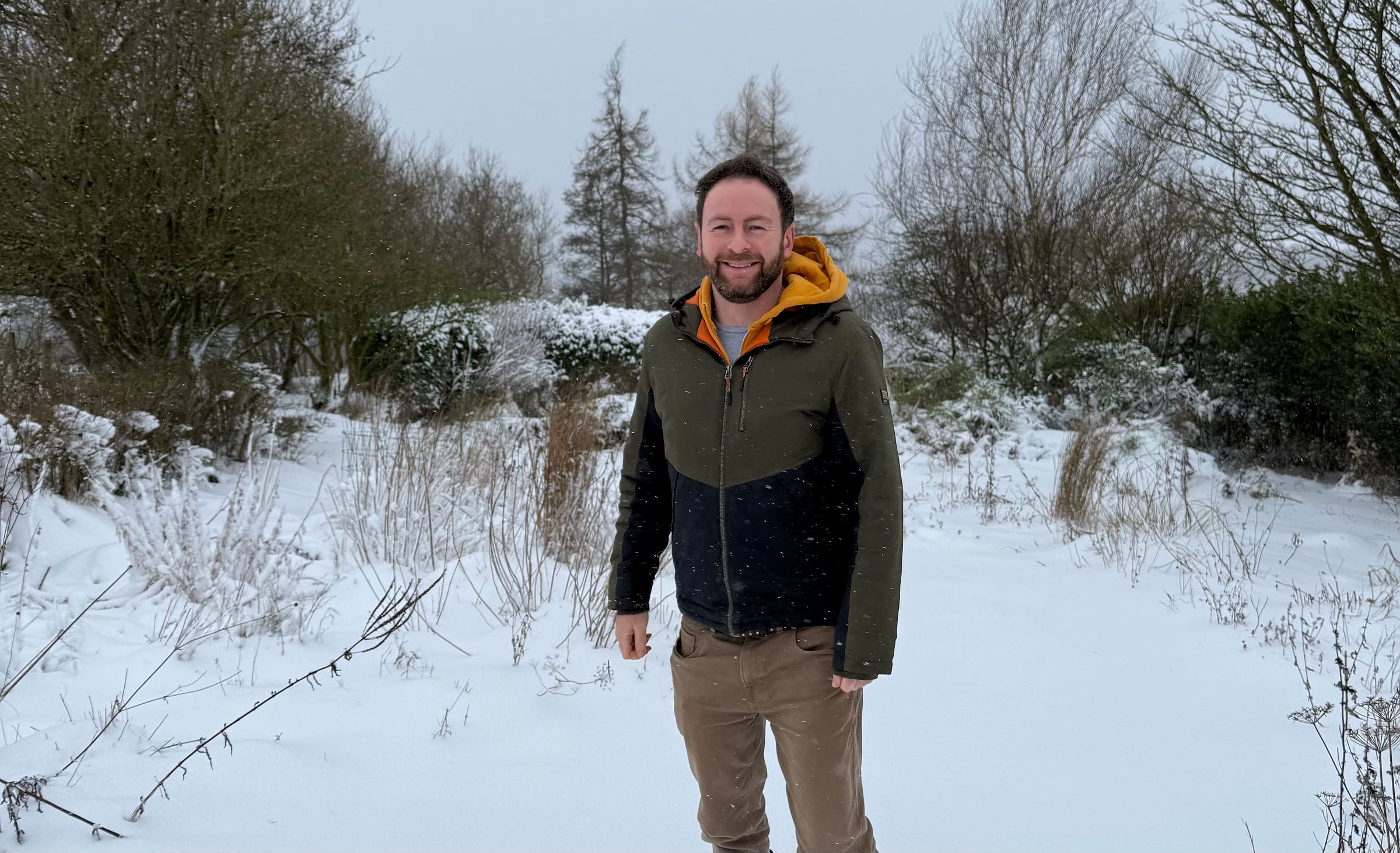How gardening and nature can help manage worry
Being outside in the natural world heals us even when we're away from it

Throughout my life I have struggled with anxiety, stress and worry and last year it reared its head in the form of really bad insomnia. I wasn’t sure if I should write this post here because it’s a bit off topic with the Wild Way, but at the same time for me, it is intrinsically linked.
I felt, for others who might feel the same, it was worth posting in case it sparks ideas that help. For those of you who don’t struggle in quite the same way, hopefully it’s insightful for other people in your life and even to manage the everyday worries and anxieties that we all have.
Most of 2024 was for me a fog of tiredness, the worst forgetfulness I’ve had, increased anxiety and moodiness. All caused through terrible rounds of insomnia that saw me waking up at midnight or 1am unable get back to sleep until 5am. Lack of one night sleep is bad enough, but over many nights or weeks is debilitating. I felt like half the person I am.
This was partly caused by genetically high blood pressure and cholesterol levels that have hit me since turning forty. Although insomnia can cause raised blood pressure, my genetics were a cause so I’ve reluctantly gone on various blood pressure and cholesterol tablets. Which have worked, reducing the insomnia, in particular headaches and chest pain I was having.
However, they didn’t solve the insomnia entirely because it was also caused by worry, which for me is a mix of anxiety that leads to stress. Worry is a good term, because that’s what I was doing. Taking minor anxieties from the day and blowing them up into scenarios I couldn’t get out of my head at night, building into stress.
My doctor put me on an online talking therapies course where I learnt more about worry. To categorise it into the controllable and uncontrollable, as well techniques to relax and distract myself from over thinking.
None of the things I worried about last year were that big a deal, often minor issues with work, online interactions or other regular issues. Yet my mind would spin out of control with ‘what if’ scenarios that never come true.
Which is where nature and gardening come back in. One of the bad habits we can develop, I was taught on the course, is to overthink possible future scenarios, blowing up a small worry into something much bigger, especially at night. When I’m half asleep, often I need to break that cycle of overthinking by distracting myself with something else.
Thinking about a nature reserve I want to visit, or a plant I can’t wait to see grow in spring has for some time been my top technique for breaking the cycle. On the course I learnt that this is a genuine technique called a safe space, something we enjoy and can think about that breaks the imaginary ‘what if’ scenarios. Gradually training our minds to not constantly plan different futures that won’t ever happen.
At night, if I’m overthinking about a small worry, I’ll think about the geraniums I’m looking forward to dividing, and how I’ll plant them all around the garden for even more impact this year. If it works, I relax and my body will let me go to sleep. Or walk around the garden, thinking about the different plants and wildlife.
Other techniques to try include breathing techniques to physically relax our muscles, in particular breathing out slowly helps me. Plus writing down thoughts and worries when they come to me, or preferably before I go to bed to know I’ve a record of them and don’t need to think about them.
Friends have advised listening to podcasts, and I read books on a kindle if I really can’t get back to sleep.
I cover how gardening can help with mindfulness in my book A Greener Life: discover the joy of mindful and sustainable gardening but I’ve kinda explained it in this post, the book is focussed on practical gardening advice for everyone to learn. This is why I’m so passionate about sharing gardening and wildlife knowledge, I know it can help a lot of people if they give gardening or exploring nature a try.

Right now, I’m heading into 2025 in a more positive place. I feel like I have my worries and anxiety under better control this year, last year I let them run away from me. Partly under control due to physical health from gardening and walking, as well as giving myself time to concentrate on my mental wellbeing. I’m definitely sleeping much better, if not completely perfectly. I worry about lack of sleep and what that means for my health longterm, but this is something I continue to work on.
A big part of my recovery has been because of gardening and nature, and by refocussing on those I feel like I have a good shot at this year being a good one. Which also means I should have some fun stories to share with you all from our garden and beyond, which is another thing that helps me. Writing the Wild Way has in itself become such an important thing to me to look forward to away from life’s worries, so thank you.
p.s. if you’re a paid subscriber, this week’s lesson is on plant vigour, which is useful for balancing permaculture plant communities of all types:



Very valuable post, Jack.
Thankyou for sharing this